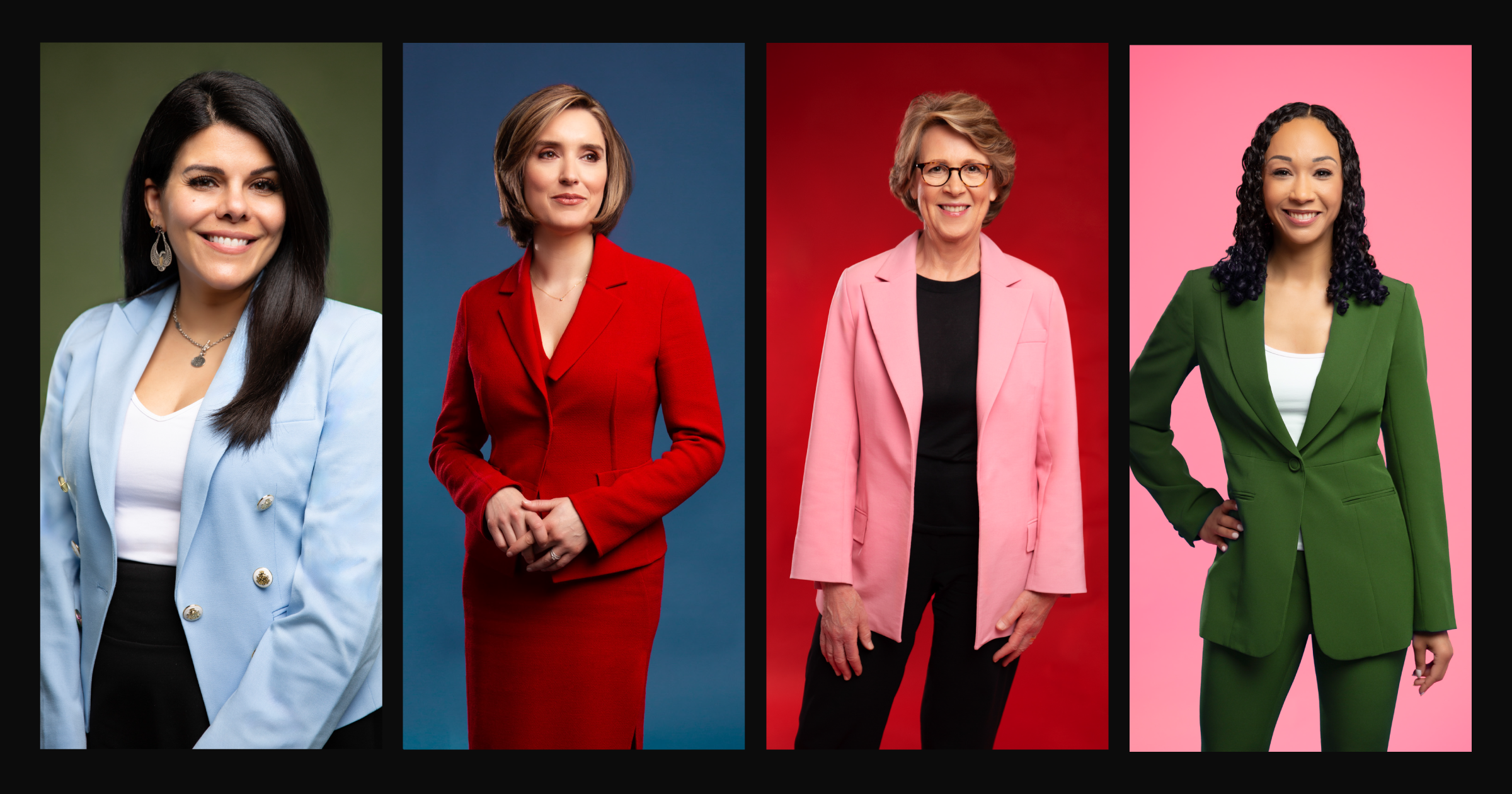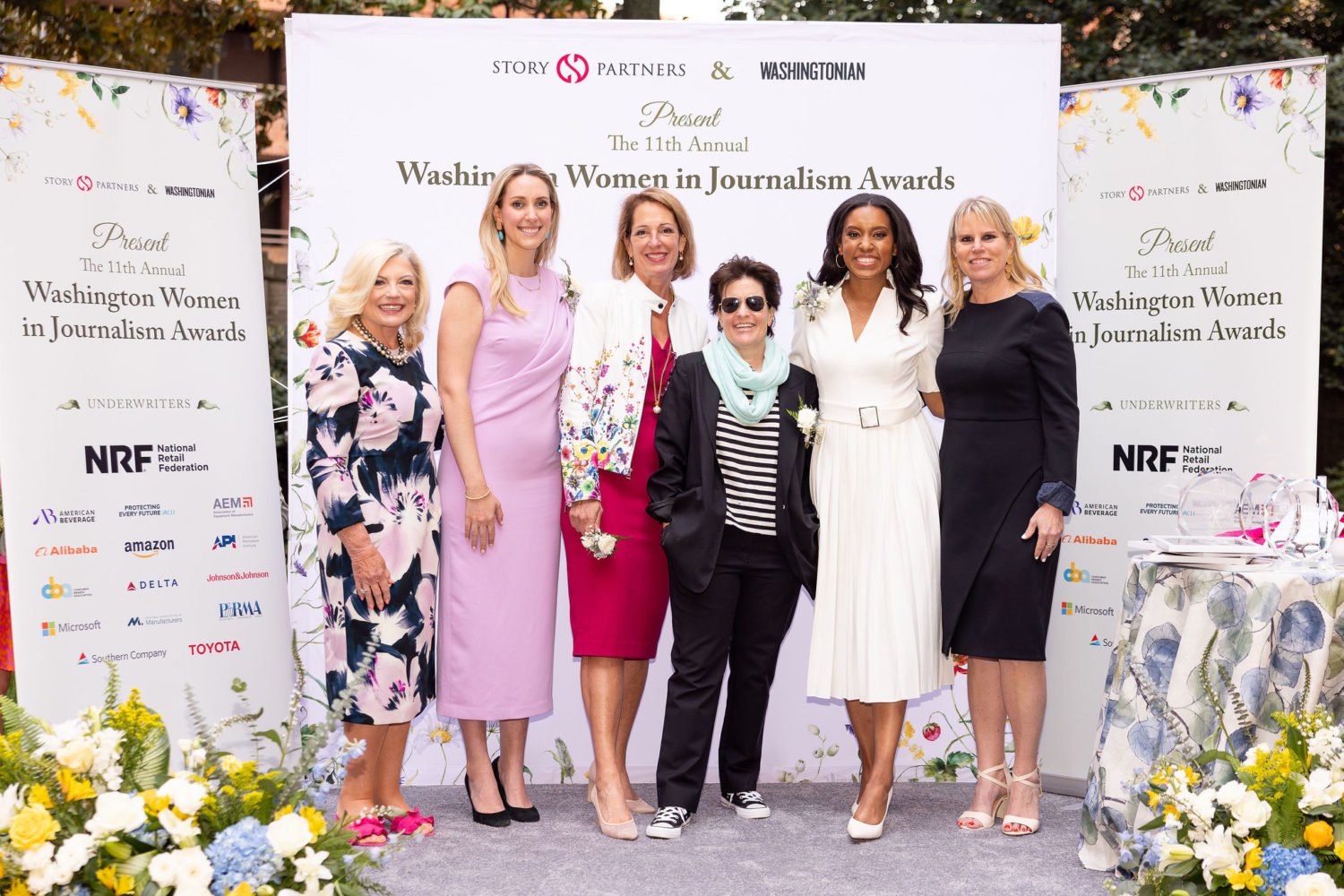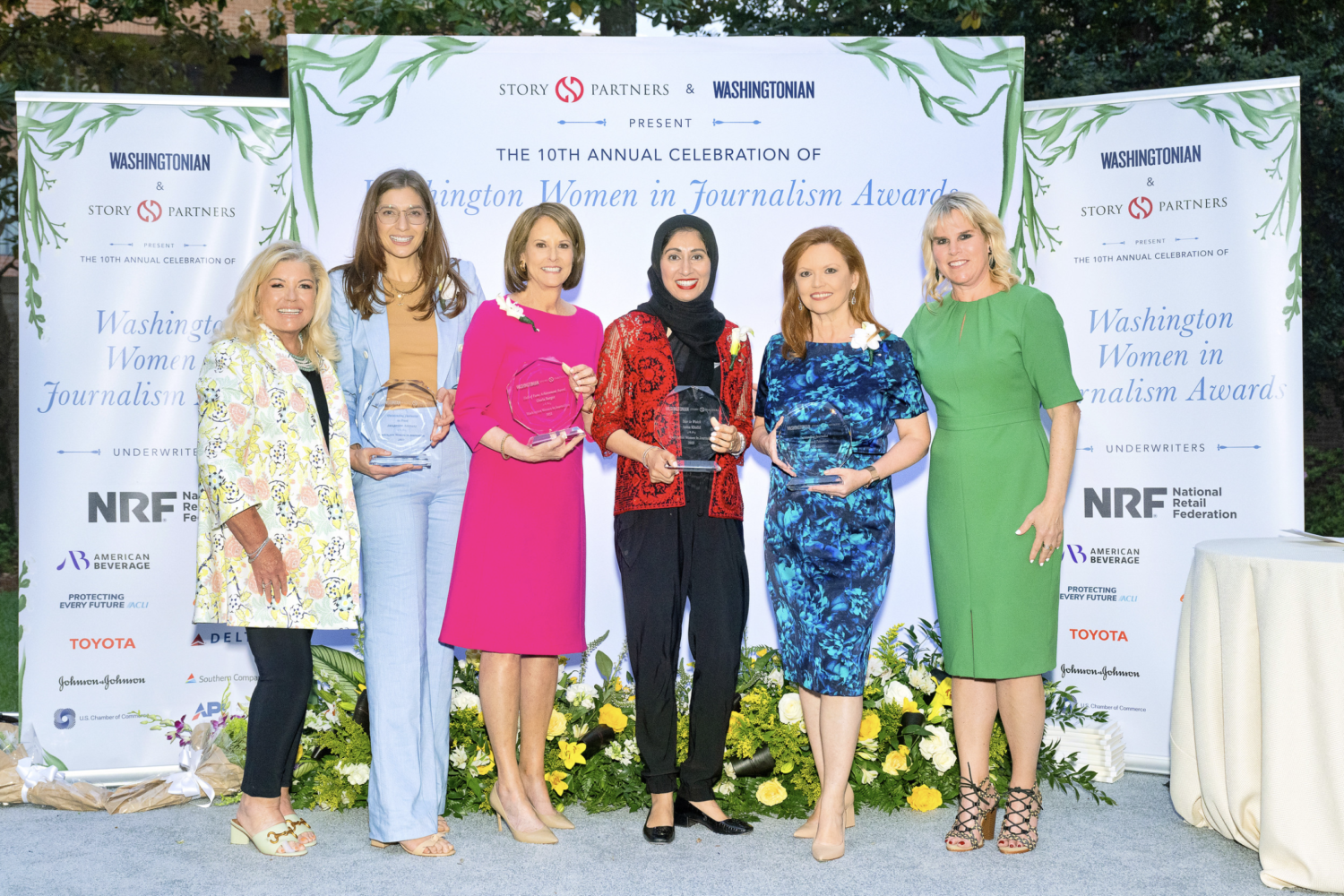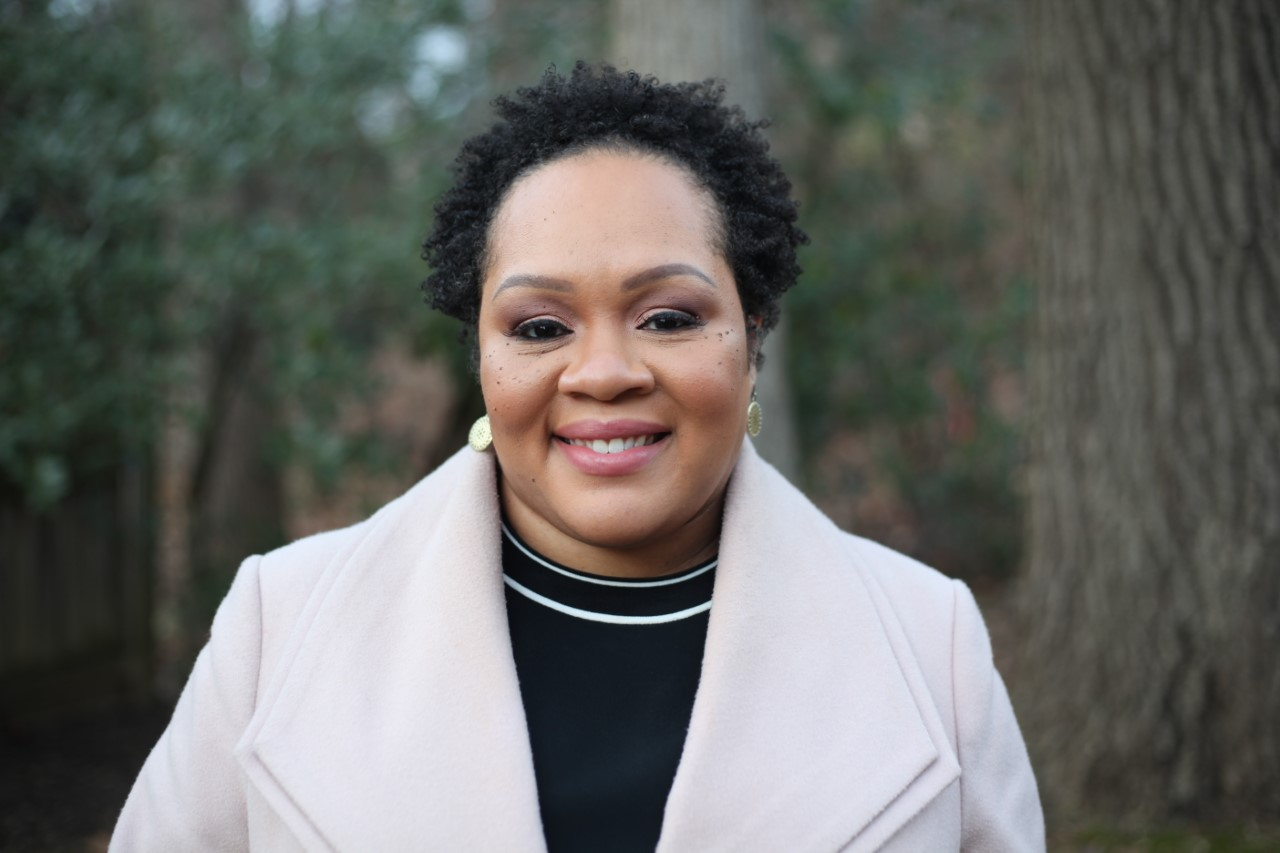
Yamiche Alcindor
PBS NewsHour White House correspondent Yamiche Alcindor also moderates the network’s Washington Week and is a political contributor for NBC News and MSNBC. Winner of the White House Correspondents’ Association’s Aldo Beckman Award for Overall Excellence in White House Coverage and named the National Association of Black Journalists’ 2020 Journalist of the Year, Alcindor previously worked as a national political reporter for the New York Times and a national breaking-news reporter for USA Today.
Where she grew up: Miami.
First byline: “It was in the Westside Gazette, a weekly Black newspaper in South Florida, [for a story] about Little League in Miami. It was pretty awful in terms of structure. I kind of wrote an essay rather than a newspaper article, but they whipped it into shape.”
First journalism job: “My first full-time journalism job was as a crime reporter for Nassau County at Newsday in Long Island.”
First big story: “I was interning at the Miami Herald before college, and there had been this assault at Walmart where one employee assaulted another. My brother happened to work at Walmart at the time, so I dug in and talked to his coworkers and ended up getting a byline on the front page of the Miami Herald at 18.”
Work she’s proudest of: “The [USA Today] story I wrote about Trayvon Martin, interviewing his cousins and going to his family’s home. It was a humanizing story, and it was a story in my neighborhood in Miami. I loved that story because it felt like I was getting back to my roots in Miami, and it was doing the work I set out to do—talking about Black people and how we can at times be criminalized.”
Best journalism advice she’s received: “I remember calling Gwen Ifill when I got booked to do Meet the Press for the first time, and I was in a panic. She told me, ‘You earned this—you deserve to be at this table.’ I’m getting into these places that are absolutely mind-blowing for me in terms of the dreams I’ve had, and I have to remind myself, ‘You can do this, you have the skills, you can do the reporting, and you deserve to be here.’ ”
Best journalism tip/hack: “Really try to have a conversation and let the person have enough space to tell their story. As journalists, we often pick what we’re writing about, but sometimes stories blossom right in front of you. You can get so caught up in what you think the story is that you’ll miss it.”
What she’d like to see change in the journalism industry to make it better for women: “I really hope the industry can embrace diversity on all levels. That means diversity in education, in race, in geography. We’re going to have to value the different experiences of people and give them the opportunity to bring those experiences into the work.”
What drew her to journalism and why she has stayed in it: “Journalists can hold a mirror up to society and show people the way America isn’t living up to its ideals. I stay in journalism because I think the work is still about truth-telling and explaining to Americans how far we are from the founding principles of this country.”
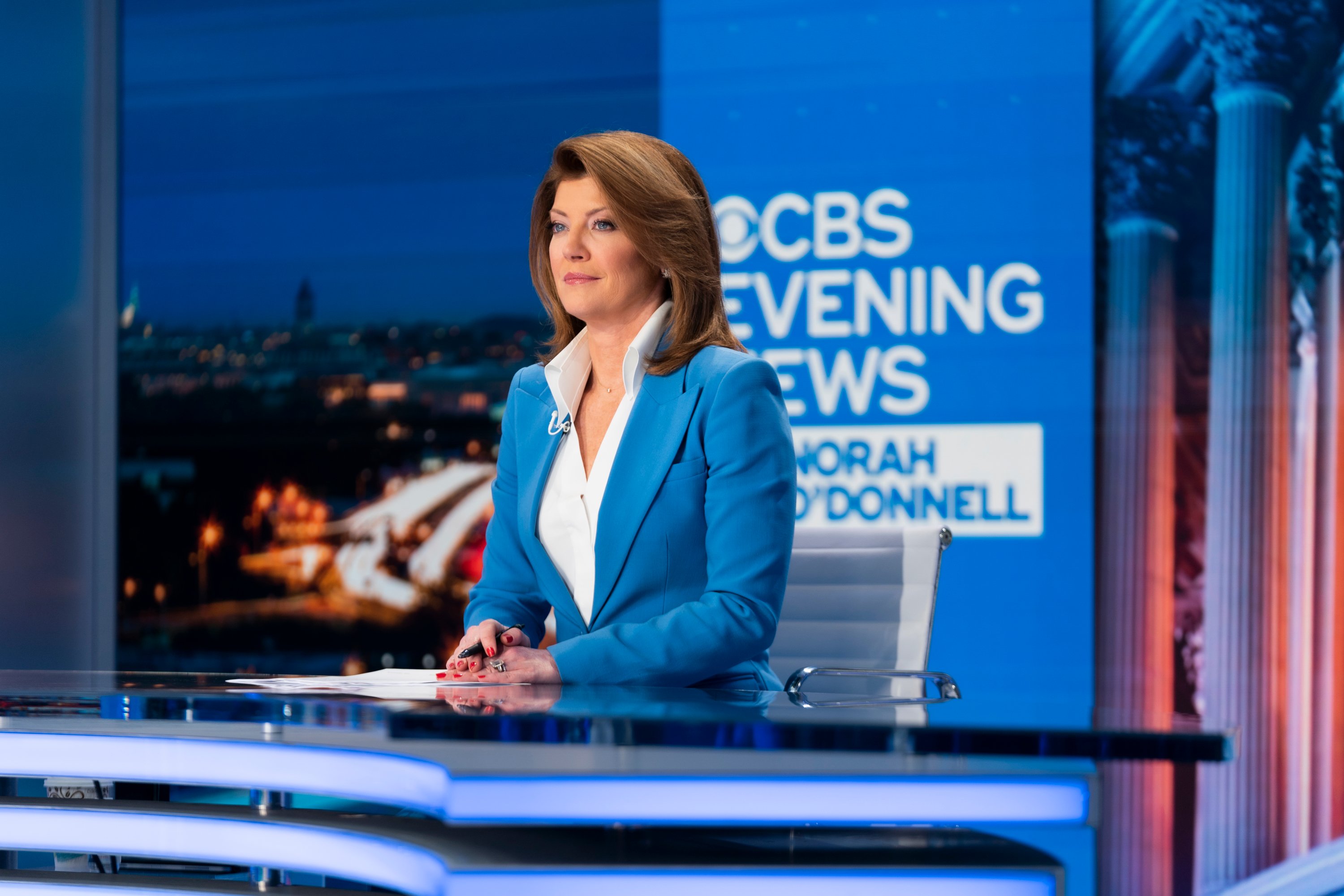
Norah O’Donnell
Emmy Award–winning journalist Norah O’Donnell spent more than a decade at NBC News covering the White House, the Pentagon, and Congress before joining CBS. During her tenure, she’s been chief White House correspondent, cohost of CBS This Morning, and a 60 Minutes contributor. O’Donnell is now a contributing correspondent for 60 Minutes, the anchor of CBS News election specials, and managing editor and anchor of CBS Evening News.
Where she grew up: “I was an Army brat, so I was born in Washington, DC; spent most of my life in San Antonio; and we did short tours in Germany and South Korea.”
First byline: “The first time I wrote for Roll Call, I wrote a story on Congressman Patrick Kennedy and how Dick Gephardt was then grooming him to be head of the Democratic Congressional Campaign Committee.”
First journalism job: “I worked for Hotline, which is now owned by National Journal. We’d get there at 6 in the morning and clip hard copies of newspapers and put together a 40-page newsletter on everything that was happening in politics.”
First big story: “Hillary Clinton was lobbying members of Congress on her husband’s behalf during impeachment, and that became a very big story that we broke in Roll Call.”
Work she’s proudest of: “The stories I’m proudest of are the ones that have impact and result in meaningful change, like the reporting we’ve been doing on military sexual assault. It’s been about five years since we started doing a series of reports about sexual assault in the Air Force. Those won two Emmy Awards and forced the Air Force to make substantive change. We’ve continued to report on this, and the new Secretary of Defense has said his first act of business will be addressing sexual assault in the US military.”
Best journalism advice she’s received: “Be a good listener and build a strong support system around you. You can have it all, but you can’t do it alone. There has to be a recognition that you can’t be good at everything.”
Best journalism tip/hack: “There is an art to asking a question. Spend the extra time working on your questions, because they’re incredibly important and can elicit different responses.”
What she’d like to see change in the journalism industry to make it better for women: “We need more women in journalism. I think what’s happened in the last few years is a reckoning after the #MeToo movement. A lot of that awakening has led to change where executives say, ‘We can’t pay lip service to the idea that there has to be equal representation in leadership.’ ”
What drew her to journalism and why she has stayed in it: “It’s just an insatiable curiosity to learn more about people and the world. My parents also revered journalism, and Barbara Walters was very much a role model. Thirty years ago, there weren’t women who were prominent on the news. But here was Walters, interviewing world leaders.”
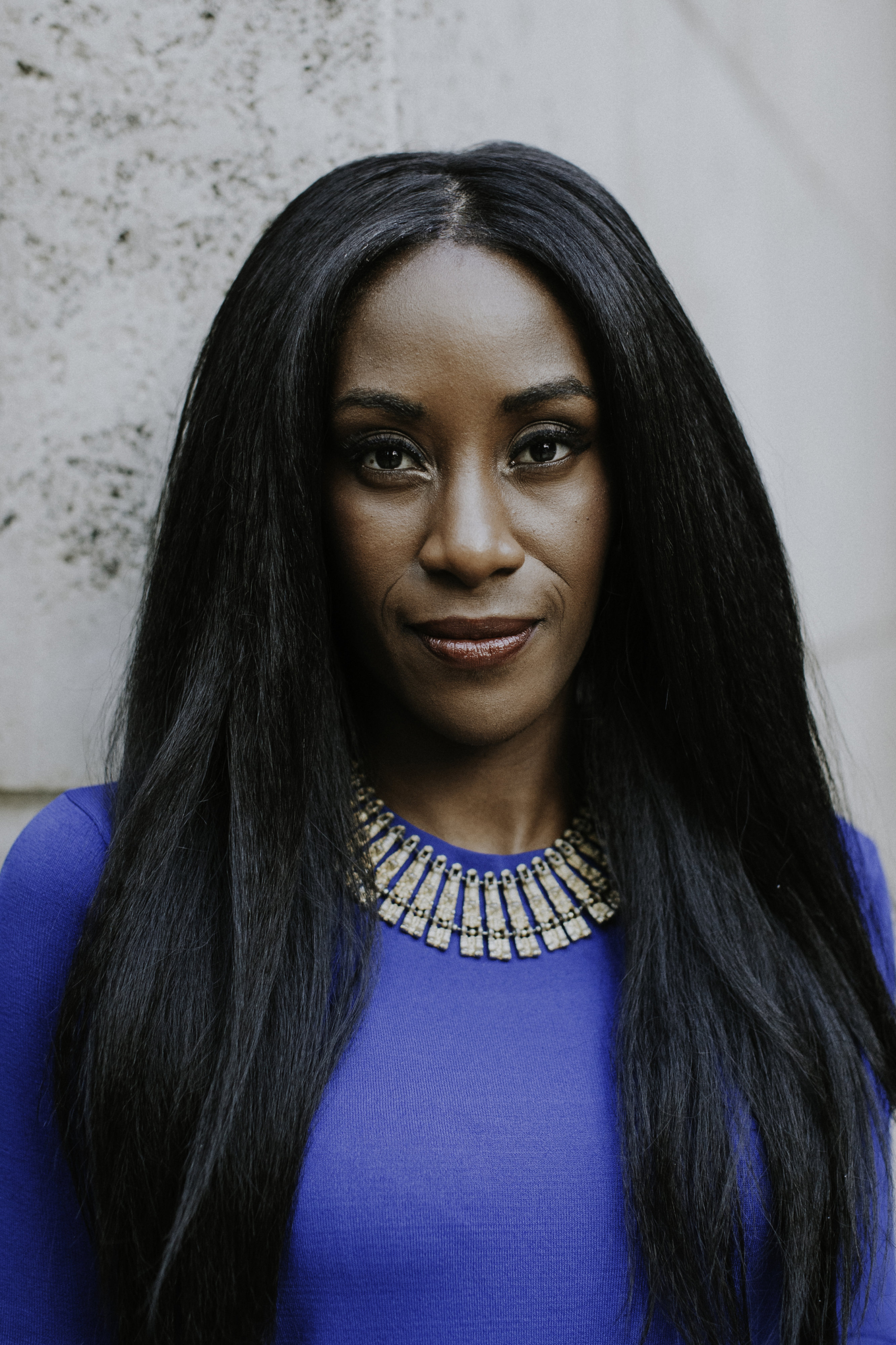
Karen Attiah
As Global Opinions editor for the Washington Post, Karen Attiah won a George Polk Special Award and was named the National Association of Black Journalists’ 2019 Journalist of the Year for her writing about the murder of her colleague Jamal Khashoggi. Before joining the Post in 2014 as a digital producer in the Opinions section, Attiah freelanced for the AP while based in Curaçao.
Where she grew up: DeSoto, Texas.
First byline: “It was a letter to the editors at the Daily Northwestern at Northwestern University. I was upset because they ran a piece a student wrote about her trip to Ghana that was laden with stereotypes and said one of our cultural foods tasted like trash. I was president of the African Student Association, and I wrote a letter saying how this was a slanted and unbalanced picture of the country.”
First journalism job: “I was with a citizens’ journalism outlet in New York called Sahara Reporters. This was in the early 2010s, where using a mobile phone for citizen journalism was the hot thing, so there were citizen journalists trying to expose corruption in Nigeria, and we were in New York trying to field those stories.”
First big story: “I did reporting on Equatorial Guinea and how US organizations were trying to white-wash the regime’s human-rights record. I criticized a particular foundation in an op-ed that got picked up by the Huffington Post.
Work she’s proudest of: “The work of my life was just doing whatever I could to raise awareness and write about Jamal Khashoggi’s murder. It was about Jamal, but it was also about fighting for all of us, for the right to not be erased. Particularly as a Black woman, where we fight erasure every day, I think that’s the story of so many in the world, just fighting injustice.”
Best journalism advice she’s received: “Read as much as you can and talk to as many people as you can. Just stay curious and humble and connected to community.”
Best journalism tip/hack: “If I ever have writer’s block and I’m tired of the screen, I get back to pen and pa-per. If I’m still having trouble, I play video-game music. Video games are like puzzles, and the music is designed to help you focus and keep your spirits up. The Final Fantasy VII soundtrack is my writing hack of choice.”
What she’d like to see change in the journalism industry to make it better for women: “There needs to be more women leadership, and not just in terms of more women managers. There needs to be more leadership in accommodating our different realities, like the different ways we have to navigate reporting on sexual assault or violence against women. And there needs to be more done to support Black women, to pay them fairly for their work.”
What drew her to journalism and why she has stayed in it: “I realized I was interested in advocacy and speaking up for people who needed it. I thought maybe I wanted to go into international development and found myself disillusioned with that whole idea, and everything came together and I realized I’m just really interested in people and their stories. It’s a vocation for a lot of us—it’s not just a job. We could have chosen lots of other things that would have made us materially more comfortable, but it’s so cool that I get to be curious for a living.”
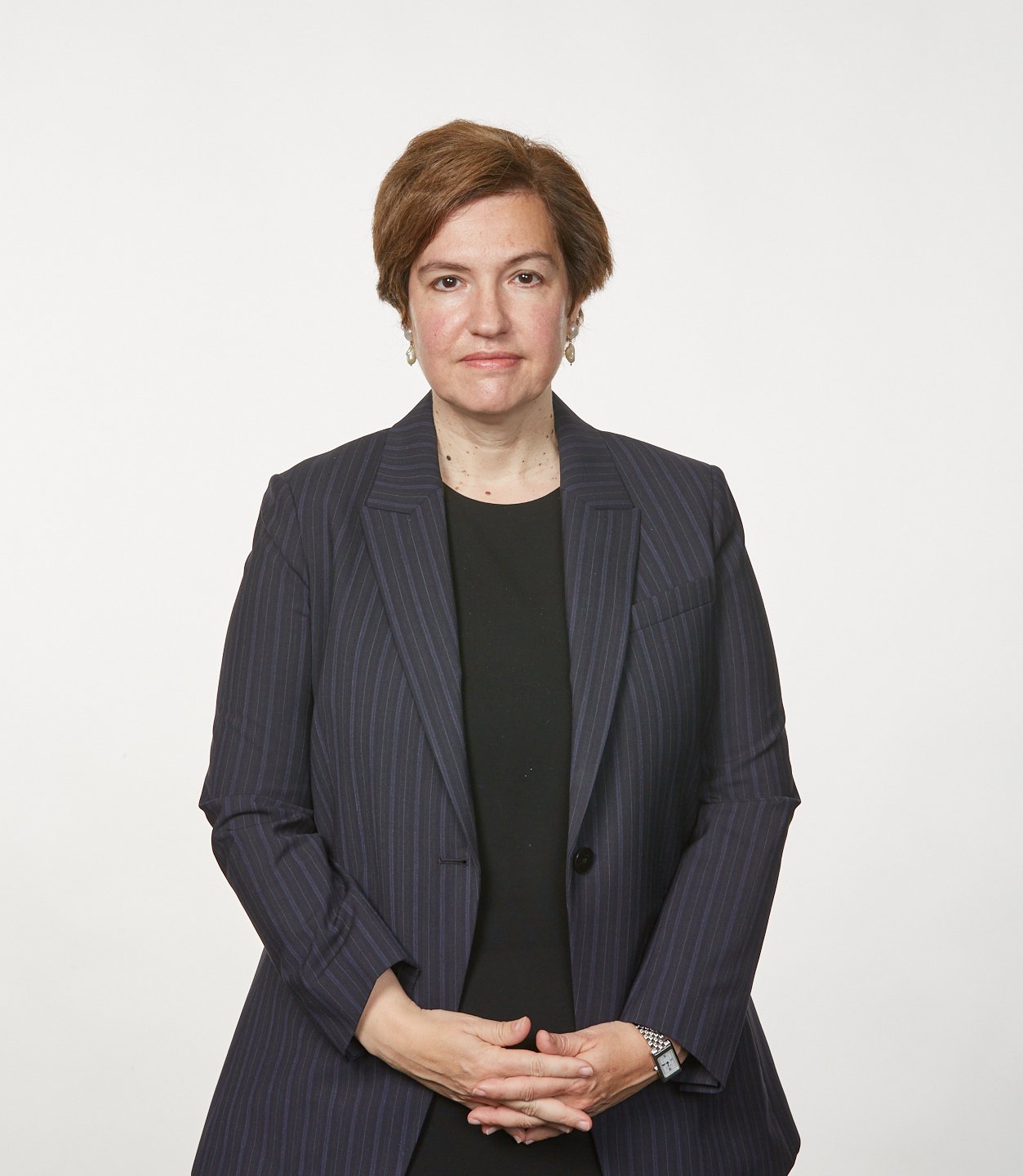
Susan Glasser
After starting her career at Roll Call,Susan Glasser spent a decade at the Washington Post covering the Clinton impeachment as well as wars in Iraq and Afghanistan, was editor in chief of Foreign Policy, founded Politico Magazine, and served as Politico’s editor during the 2016 election. Currently, she’s a staff writer at the New Yorker, where she writes a weekly column about Washington.
Where she grew up: Montclair, New Jersey.
First byline: “I worked on the newspaper at Montclair High School.”
First journalism job: “The second half of my freshman year at Harvard, I came to work in Washington at Roll Call, covering Congress. I spent the first eight years of my career at Roll Call and went from being an intern to the top editor.”
First big story: “Sophomore year of college, my colleagues and I broke a story about a fundraising scandal at the Kennedy School of Government. That made national news and taught me a lot about reporting, how institutions react under stress, and the value of documents.
Work she’s proudest of: “Having the chance to be a foreign correspondent was incredibly important in helping me better understand what happens in Washington, because ground truth in the rest of the world is often very divorced from the Washing-ton conversation.”
Best journalism advice she’s received: “Don’t be afraid to ask for help. There are no stupid questions.”
Best journalism tip/hack: “You learn the most from people who don’t share your views. And the best stuff in an interview always comes at either the very beginning or the very end. Always throw off one good question on your way out the door.”
What she’d like to see change in the journalism industry to make it better for women: “I spent far more time than I ever could have expected as the only woman at the table. I hope that’s going away, but I see enormous structural impediments to women leadership. I don’t think we can be complacent about even what looks to be good gains in representation in the last few years.”
What drew her to journalism and why she has stayed in it: “The real secret of journalism is that for those for whom it’s the right profession, there’s nothing better. It’s more of a calling and a lifestyle than just a job. It’s about lifelong learning. It could never possibly be boring, because you’re always engaging in something new and you have the opportunity to follow where your curiosity leads you.”
Past Winners
2020
Rita Braver, CBS, Hall of Fame Award
Kristen Welker, NBC, Outstanding Journalist in Broadcast
Molly Ball, Time, Outstanding Journalist in Print
Anna Palmer, Politico, Rising Star
2019
Andrea Mitchell, NBC, Lifetime Achievement
Ashley Parker, Washington Post, Outstanding Journalist in Print
Abby Phillip, CNN, Outstanding Journalist in Television
Amanda Terkel, Huffington Post, Rising Star
2018
Amanda Bennett, Voice of America, Hall of Fame Achievement Award
Amy Walter, Cook Political Report, Outstanding Journalist in Television
Audie Cornish, NPR, Outstanding Journalist in Radio
Lynn Sweet, Chicago Sun-Times, Outstanding Journalist in Print
2017
Cokie Roberts, Distinguished Female Journalist of the Year
Jane Mayer, New Yorker, Outstanding Journalist in Print
Mary Louise Kelly, NPR, Outstanding Journalist in Broadcast
Mary Katharine Ham, CNN, Rising Star
2016
Susan Page, USA Today, Hall of Fame Achievement Award
Dana Bash, CNN, Outstanding Journalist in Broadcast
Kathryn Lopez, National Review,Outstanding Journalist in Periodicals
Carolyn Ryan, New York Times, Outstanding Newspaper/Wire Journalist








